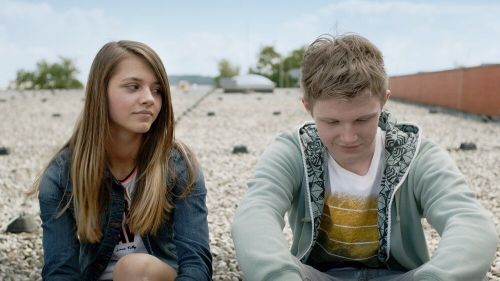Cinema | December 20th, 2017
 On the occasion of the Netflix release of “One of Us,” veteran filmmakers Heidi Ewing and Rachel Grady shared with writer Kate Erbland some of the self-imposed “rules” to their formidable approach.
On the occasion of the Netflix release of “One of Us,” veteran filmmakers Heidi Ewing and Rachel Grady shared with writer Kate Erbland some of the self-imposed “rules” to their formidable approach.
The documentarians indicated that potential subjects must offer rare and special access. They also make sure that the content includes “observational, vérité material,” along the order of high-stakes events unfolding in the here and now. The directors expect that the “characters be different by act three.” Participants in the film do not see footage during production and are not allowed “any editorial input.”
“One of Us” follows three individuals who have left or are in the process of leaving the strict community of New York City’s Hasidic Jews, to which they once so inextricably belonged.
Etty, no longer willing or able to suffer physical and emotional violence at the hands of her husband, fears the loss of her seven children and struggles with the potentially catastrophic financial burden of a protracted court battle in which the deck appears to be stacked against her.
Teenage Ari yearns for knowledge of the greater, wider world. He gushes about the singular thrill of exploring Wikipedia.
Finally, Luzer has tested the waters in Los Angeles, where he hopes to find work as an actor, his passion born from clandestine viewings of forbidden movies.
The emotional weight of the film -- and its most chilling drama -- resides in the sections focused on Etty. Her last name deliberately withheld, she attends a support group called Footsteps, but it becomes clear as time passes that defiance of the Hasidic leadership is a seemingly Sisyphean endeavor. As David Edelstein points out in his essay on the film, the Hasidim “...do not believe that secular laws should affect them.” The portrait of Etty emerges as the film’s centerpiece, and she alone could easily have sustained interest for an entire feature.
For so many audience members, “One of Us” gets close to something that would otherwise be foreign, hidden, and obscure. And yet the filmmakers locate universally human desires and experiences to which anyone can relate.
Overt vilification of the leadership within the patriarchal structure of Brooklyn’s orthodox community is withheld, although the vast majority of secular (and scores of religious) viewers won’t require much persuasion to imagine that the treatment of Etty, Ari, and Luzer is brutal and unfair.
One of the most intriguing scenes in the film records an interaction between Ari and an older community member at a playground known to be a popular hangout for youngsters who like the location’s free wifi access.
The elder, unknowingly providing Grady and Ewing with the title of their film, asks Ari, “Are you one of us?” The question is sincere, since Ari has cut his payot but still wears a yarmulke.
The exchange is a vivid demonstration of just how difficult it can be for a member to leave, as well as a specific reminder of the painful feelings of abandonment and rejection that accompany the liminal state when one is neither completely in nor completely out.
February 16th 2026
February 16th 2026
February 9th 2026
February 4th 2026
January 26th 2026
__293px-wide.jpg)

_(1)_(1)_(1)_(1)_(1)__293px-wide.jpg)
_(1)_(1)_(1)_(1)_(1)__293px-wide.jpg)

